Published on 10.12.2024
Helmholtz Imaging Newsletter Issue No. 18
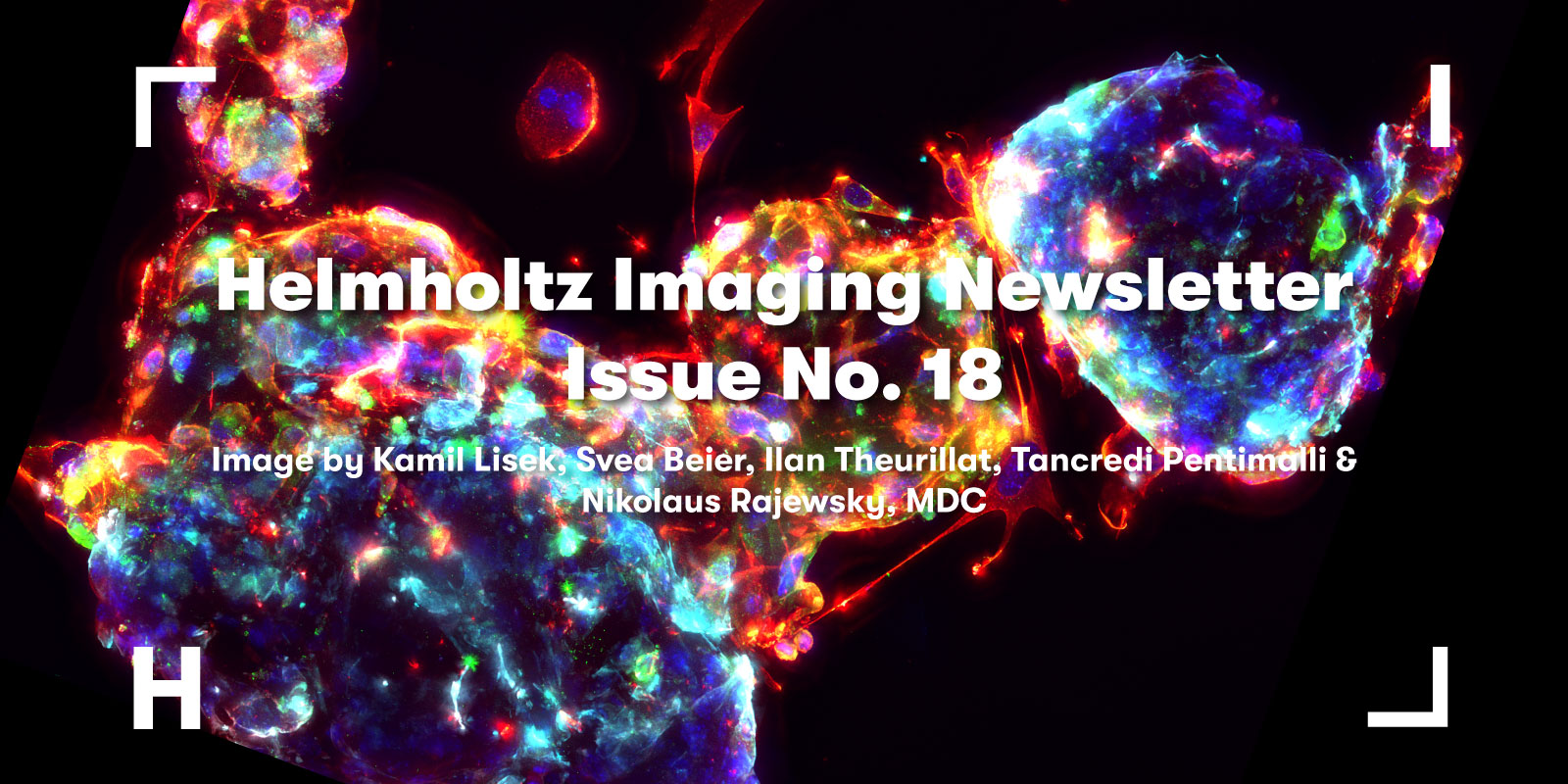
Dear Imaging Enthusiast,
Welcome to the latest edition of our newsletter! This time, we bring you exciting updates and fresh insights from our recent activities and partner platforms, as well as new opportunities to engage with the community. From new research initiatives and training materials to upcoming workshops, there’s something for everyone in this issue.
- New Helmholtz President: Get to know Dr. Martin Keller, set to lead the Association starting November 2025.
- AqQua Project: Using AI to monitor plankton biodiversity and carbon export.
- Driving Sustainable AI: Discover six Helmholtz projects funded by the BMBF for innovative machine learning solutions.
- Best Scientific Image Contest 2025: Showcase your work and win prestigious awards.
- Helmholtz Summer School: Deep dive into the workshop materials from our three specialized courses.
- Deep Learning in Inverse Problems Workshop: Read the recap from this collaborative event on supervised and unsupervised learning.
- MICCAI 2024 Educational Award: DKFZ researchers win second place for their advanced validation toolkits.
- Recognition: Oliver Bruns, HI Project BENIGN PI, honored for advancements in SWIR imaging.
- Five New Helmholtz Imaging Projects Funded: Discover the new cross-disciplinary collaborations starting in 2025.
- How Can AI Transform Healthcare? Watch Paul Jäger discuss the potential of Foundation Models to revolutionize patient care.
- HAICORE 3.0 Launch: MDC enhances foundation model research with new GPU resources.
- Helmholtz Reproducibility Workshop: Explore the essence of reproducible science and its transformative potential on March 25, 2025.
- Helmholtz Open Hackathon: Join this hybrid event in April 2025 to lift your applications to the next level.
- Leaving X: We’re stepping away from X. Find us on BlueSky, Instagram, LinkedIn, Mastodon and Mattermost.
- Meet Us: Find our team at NeurIPS 2024 in Vancouver for exciting talks and workshops.
- Platform Updates: Discover the latest news from our partner platforms HIDA, HIFIS & HMC.
- Funding & Award Opportunities: Learn about the DAAD Young Talents Program for AI & Computer Science.
- Latest Publications & Jobs: Explore recent scientific publications and career opportunities.
Happy reading!
Your Helmholtz Imaging team
***
A personal note from us:
Do you have an imaging challenge, no matter how big or small? We’re here to help you, free of charge. Contact us via our support hub.
Also, if you haven’t yet, join our network of experts, modalities, instruments, and facilities! CONNECT with us.
Interested in receiving our newsletter directly in your mailbox? Subscribe here.
***
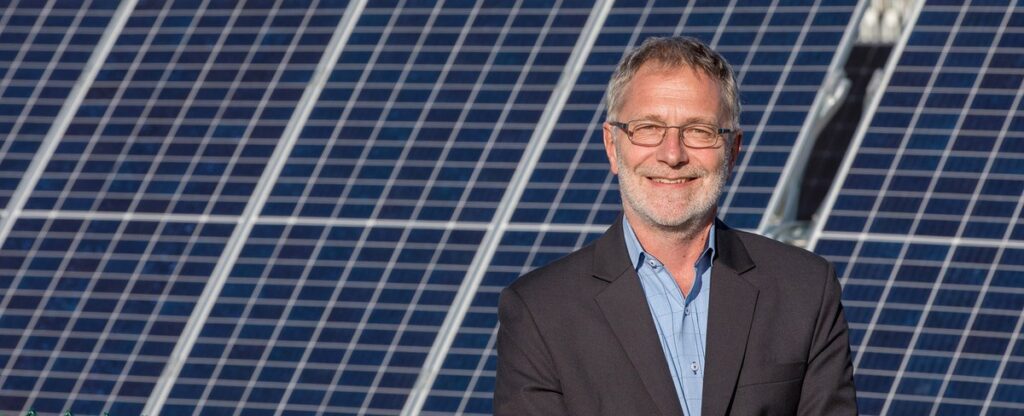
New Elected President of the Helmholtz Association: Dr. Martin Keller
In November 2025, Dr. Martin Keller, an internationally renowned researcher and science manager, will join the Helmholtz Association as its new President. Currently servicing as Director of the National Re-newable Energy Laboratory, Keller is set to further strengthen Helmholtz’s mission to tackle the world’s most pressing global challenges.
Learn more about Dr. Keller in this news article by the Helmholtz Association and the special edition of the “Helmholtz Monthly” newsletter.
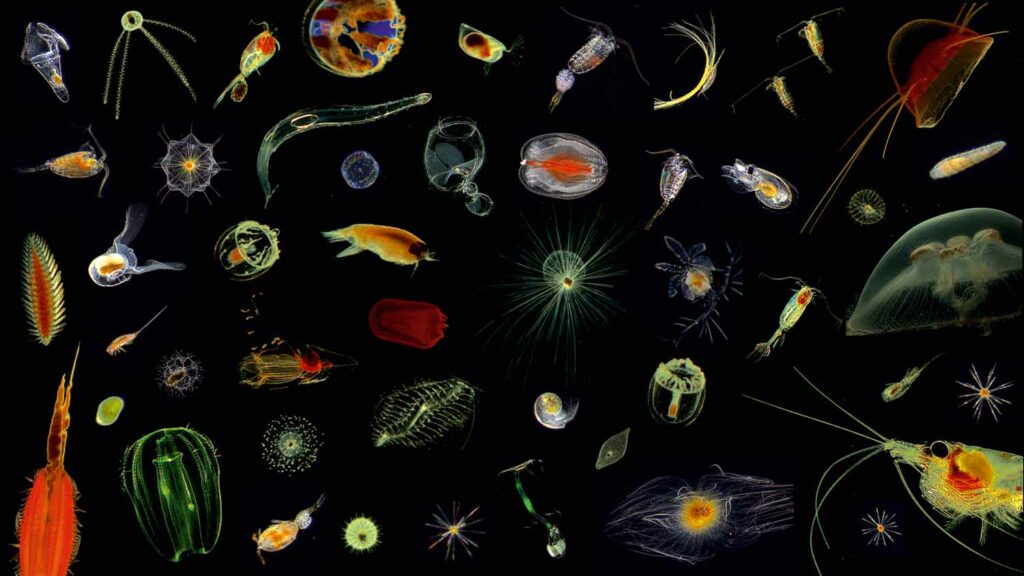
The Aquatic Life Foundation Project (AqQua): AI-Enabled Global Monitoring of Plankton, a Crucial Carbon Sink in Peril
The AqQua Project secured funding from the Helmholtz Foundation Model Initiative. Led by Rainer Kiko, Group Leader Plankton Biogeochemistry and Dynamics at Geomar and Dagmar Kainmüller, Helmholtz Imaging’s Spokesperson and Research Unit Head at MDC, the project brings together specialists from various Helmholtz Centers and more than 40 partner institutions globally. AqQua aims to transform our understanding of aquatic ecosystems and their essential role for human well-being in the face of climate change.
Dagmar notes, “We know that plankton plays a major role in sequestering carbon from the atmosphere. We also know that plankton biomass is decaying due to climate change. With that said, it is horrifying to me how little is known about the abundance of most plankton species, and how uncertain estimates of respective carbon uptake are. AqQua is a truly unique opportunity to push for operational global monitoring of plankton biodiversity and carbon export, and I very much look forward to the concerted effort we will pursue with our fantastic interdisciplinary consortium.”
Read more about this transformative project
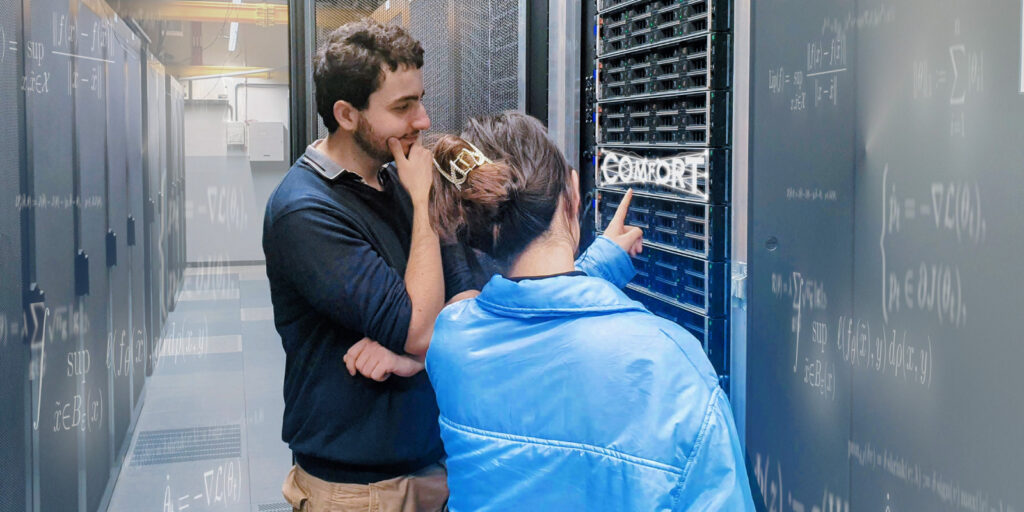
Driving Sustainable AI: BMBF Funding for the Helmholtz Association & its Data Science Platforms for Machine Learning Innovation
Six Helmholtz-led or co-led projects have secured Federal Ministry of Education and Research (BMBF) funding to advance machine learning’s flexibility, resilience, and efficiency. Among them is COM-FORT, led by Martin Burger (Helmholtz Imaging, DESY), which develops mathematically grounded methods for efficient and robust learning, and reduces the CO₂ footprint of neural network training through model compression. “The goal is, on the one hand, to make the use of neural networks more reliable through theoretical guarantees and, on the other hand, to significantly improve the CO₂ foot-print of training and evaluation through model compression,” explains Tim Roith, postdoctoral re-searcher with Helmholtz Imaging at DESY, and COMFORT’s Co-Helmholtz PI.
Learn more about COMFORT and the other funded projects
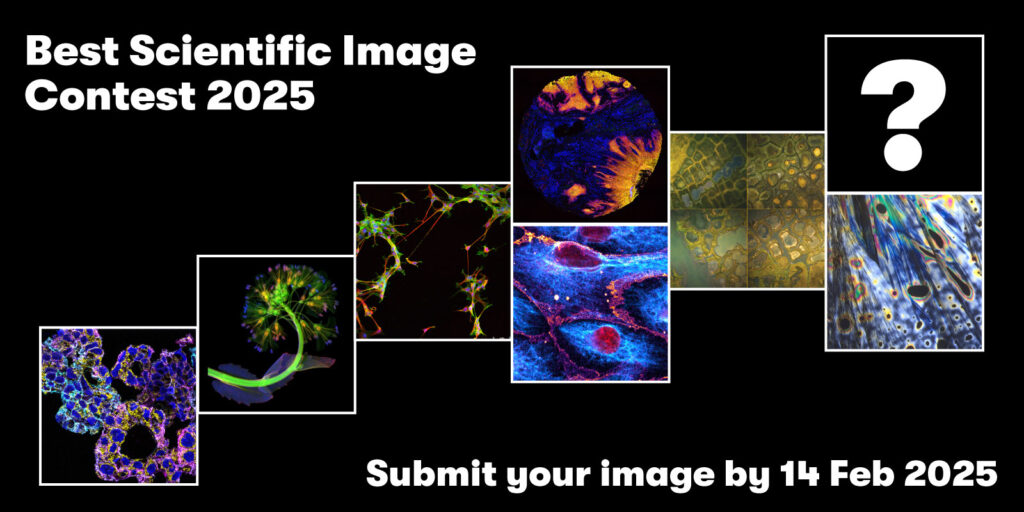
The Call for the Best Scientific Image 2025 is Open
Following the success of our competitions in previous years, where winning images traveled across Germany and were featured in a calendar showcasing the remarkable portfolio of the Helmholtz Association in imaging, we continue to celebrate the incredible impact of imaging science in addressing global challenges.
Submit your captivating scientific image(s) by 14 February 2025 for a chance to win the prestigious Helmholtz Imaging Best Scientific Image 2025 award and valuable prizes: awards.helmholtz-imaging.de.
We invite submissions featuring images produced using any imaging technique developed or applied at Helmholtz Centers, as well as artistic compositions that combine various such images. The contest is open to anyone working at a Helmholtz Center.
Winning images will be announced by Prof. Wiestler, President of the Helmholtz Association, at the Helmholtz Imaging Conference 2025 (June 25–27).
Learn more & submit your image(s) by February 14, 2025
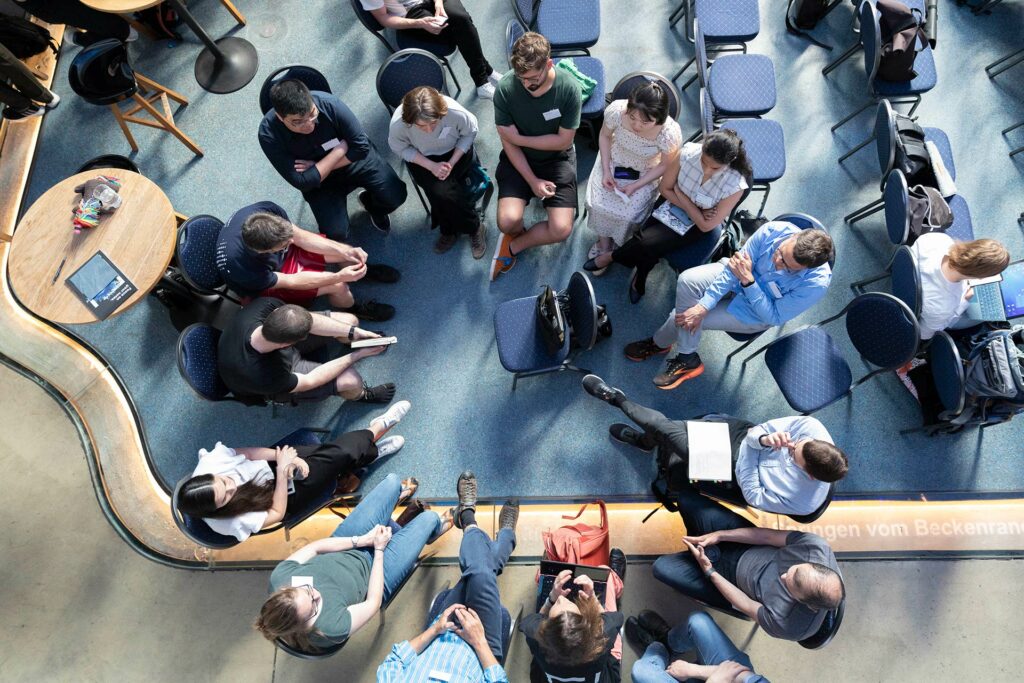
Helmholtz Summer School – From Data to Knowledge: Course Materials by Helmholtz Imaging
Held from September 16-27, 2024, the Helmholtz Summer School offered participants a comprehen-sive, two-week course program designed to enhance their skills in Information & Data Science. The carefully curated courses spanned a wide range of topics, ensuring participants with different levels of expertise could find workshops tailored to their needs.
This year’s program featured three specialized courses hosted by Helmholtz Imaging: Regularization in Image Reconstruction: From Model to Data-Driven Methods, Introduction to Image Registration, Visu-alization of volumetric datasets.
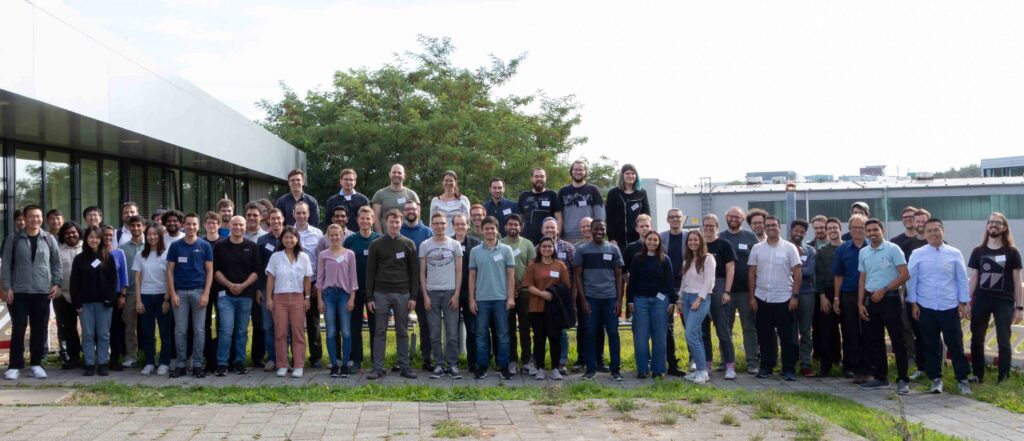
Exploring Learning-Based Approaches to Inverse Problems
The Deep Learning in Inverse Problems Workshop (September 23–24, 2024) brought together 70 participants from Helmholtz centers, universities, and research institutions to exchange ideas and explore learning-based methods for solving inverse problems. Hosted by DESY, Helmholtz Imaging, and partners, the event delved into supervised and unsupervised learning, generative models, and innovative applications in imaging and audio processing.
Keynotes by leading experts Tatiana Bubba (University of Bath), Antoine Deleforge (INRIA Nancy), Berthy Feng (California Institute of Technology), Eloi Moliner (Aalto University) and Ozan Öktem (KTH Stockholm) complemented engaging talks, posters, and dynamic discussions, fostering collaboration in this vital research area.

DKFZ Researchers win 2nd place in the MICCAI 2024 Educational Award
At MICCAI 2024, a leading international conference on medical imaging, Annika Reinke and Ali Emre Kavur from the Helmholtz Imaging Research Unit at DKFZ secured second place in the Educational Award for their contribution to educating the broader community on advanced validation techniques. Their winning blog post introduced the Metrics Reloaded and Rankings Reloaded web toolkits, designed to simplify advanced validation techniques.
Metrics Reloaded offers problem-aware recommendations for choosing validation metrics, while Rank-ings Reloaded provides advanced visualizations for benchmarked algorithm results. Both tools are ac-cessible to users without extensive theoretical knowledge.
Learn more by watching their video teaser, and reading their blog post
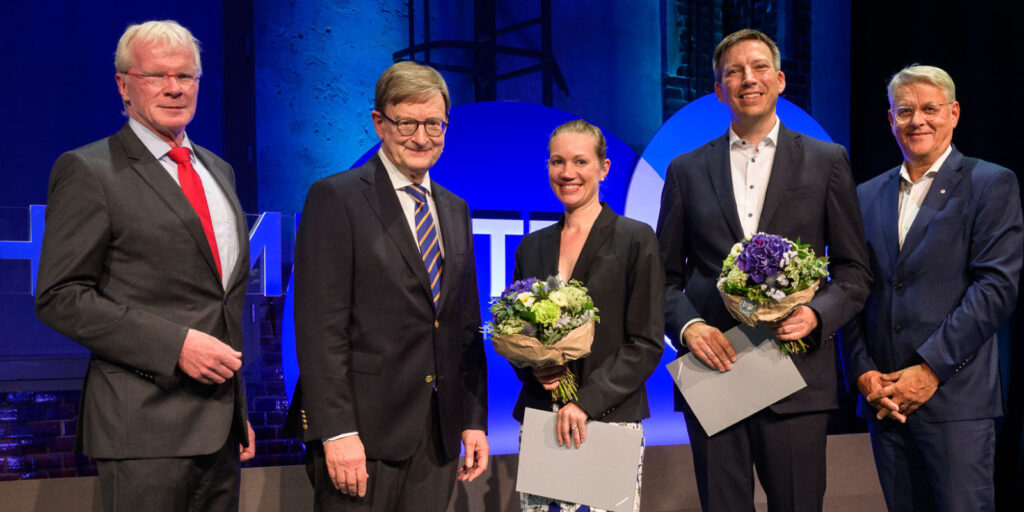
Helmholtz Imaging Project BENIGN Co-Lead Oliver Bruns Awarded for Advancing Medical Imaging
The Helmholtz High Impact Award 2024 was awarded to Oliver Bruns and Ellen Sletten for their research on a new medical imaging technology in the short-wave infrared range (SWIR). We interviewed Oliver Bruns to learn more about his research in SWIR imaging, gain insights into the role of interdisciplinary collaboration, and explore future applications of his work. We also asked for his advice to young scientists.
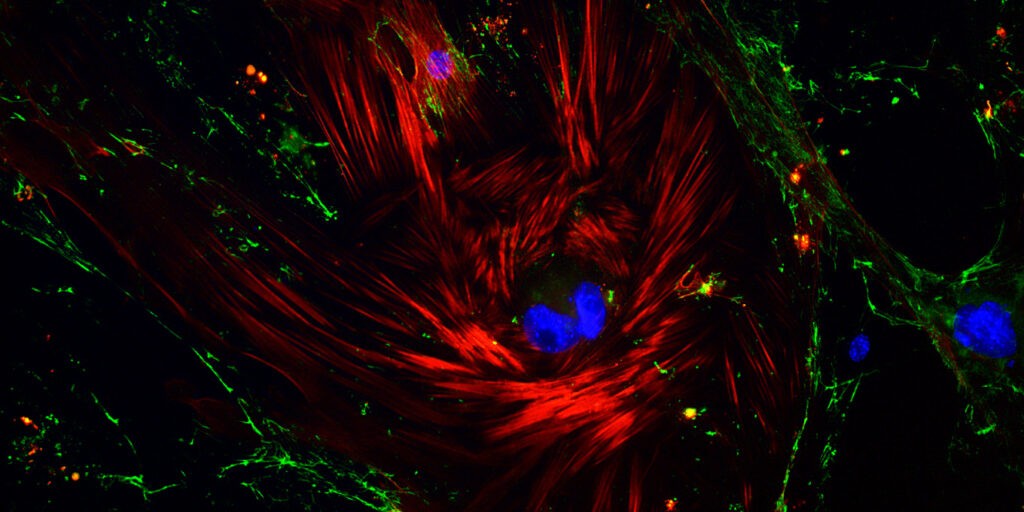
Five New Interdisciplinary Helmholtz Imaging Projects Funded
Starting 2025, five additional Helmholtz Imaging Projects will receive funding for cross-cutting and -disciplinary research collaborations: POINTR, JIMM2, PlastoView, FOMIA and CryoFocal. These projects cover a diverse array of topics and challenges, from tracking ecosystem changes in boreal forests to advancing myelin imaging for better neurological disease diagnostics, and developing low-cost image-based tools to detect microplastics. They are united by the ambition to apply established techniques from one research field to another, and in doing so, to develop innovative solutions and powerful methods for all steps of the imaging pipeline. Since the establishment of this call, research teams have collaborated in a total of 35 HI projects to advance imaging across the Helmholtz Association.
Explore the new Helmholtz Imaging Projects
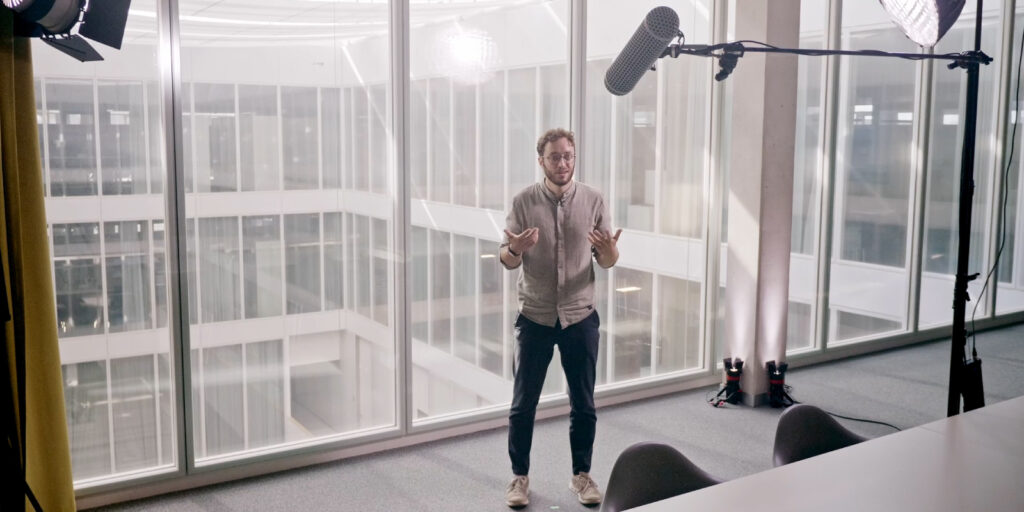
Helmholtz Video: How Can AI Improve the Way Patients are Treated?
In a new video from Helmholtz, Paul Jäger, Helmholtz Imaging Head of Research Unit at DKFZ, explores how AI can be harnessed to transform healthcare. Paul explains the limitations of traditional AI ap-proaches and the potential of Foundation Models to process vast amounts of healthcare data, and improve patient care.
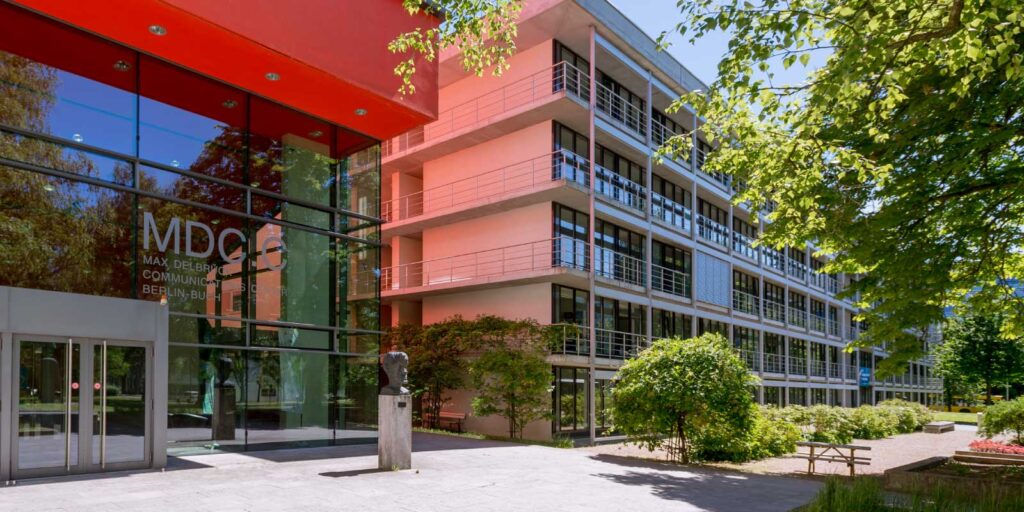
Introducing HAICORE 3.0: Accelerating Foundation Model Research at MDC
The Max Delbrück Center (MDC) will launch its HAICORE 3.0 computing resources by the end of this year, enhancing GPU resources (initially) for Helmholtz Foundation Model Initiative projects. Supported by Helmholtz Imaging, MDC’s new GPUs enable advanced AI applications like foundation and large lan-guage models. This advancement opens up new opportunities for AI applications in a wide range of scientific fields.
HFMI-funded projects will initially access up to 50,000 GPU hours per application, with potential availa-bility for other Helmholtz researchers. This launch complements existing HAICORE resources at For-schungszentrum Jülich (FZJ) and upcoming expansions at KIT and HZDR.
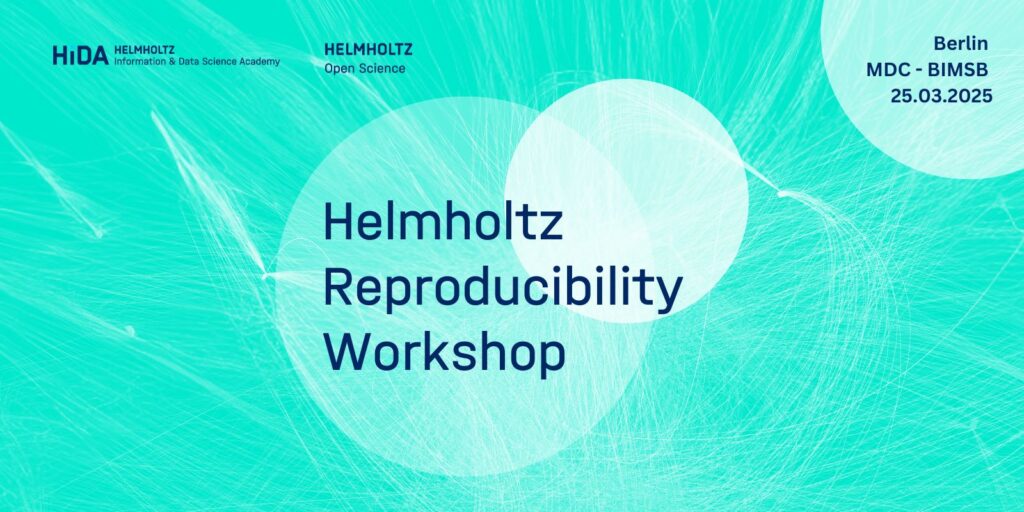
Interested in Image Prevalidation? Join us at the Helmholtz Reproducibility Workshop
As part of the fourth Helmholtz Reproducibility Workshop (see also here) on March 25, 2025 in Berlin, we’re pleased to offer a workshop on image prevalidation. In this workshop, Deborah Schmidt from our Engineering and Support Unit at MDC will introduce the importance of ensuring that image data is suitable for the analysis it is intended for.
Join to explore challenges, practical approaches, best practices and common pitfalls. The goald is to foster communication and mutual learning, helping everyone to improve their image validation workflows.
Register by March 10 to participate

Helmholtz Open Hackathon
Together with NVIDIA and OpenACC organization, Helmholtz (supported by HIDA) will host a hybrid Open Hackathon from April 1-11, 2025. This multi-day, intensive, hands-on event is designed to help computational scientists and researchers port, accelerate and optimize their applications on a variety of data center architectures, including CPUs and GPUs. The event pairs participants with dedicated mentors experienced in programming and targeted application areas to realize performance gains and speedups using a variety of programming models, libraries, and tools.
Learn more & apply by February 10, 2025

We are leaving X (formerly Twitter)
As of now, we’re stepping away from X, and focusing on platforms that better reflect our commitment to Open Science and a diverse, respectful community. This decision aligns with our dedication to fostering welcoming, supportive, inclusive, and harassment-free spaces.
While our X account will remain inactive as an archive, we invite you to engage with us on the following platforms: BlueSky, Instagram, LinkedIn, Mastodon and Mattermost.
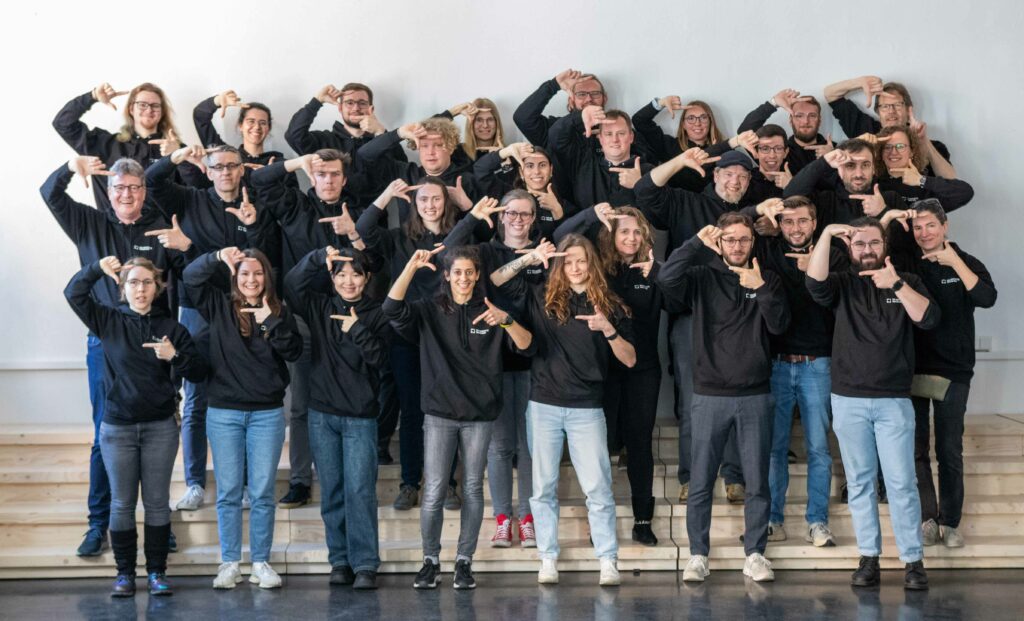
Meet Helmholtz Imaging
Say hello to Helmholtz Imaging team members at the following events:
- Meet Carsten, Jeremias and Lukas from our HI Research Unit at DKFZ, and Jannik, Chris, Claudia and Vanessa from our HI Research Unit at MDC at NeurIPS in Vancouver on December 10-15, 2024.
News from our Partner Platforms

HIFIS Offerings for DataHub
The DataHub of the Research Field Earth and Environment integrates seamlessly with HIFIS. DataHub services utilize HIFIS services like Helmholtz ID for authentication and authorization, the Helmholtz Research Software Directory (RSD) for offering research tools, and the Helmholtz Cloud for opening the access to data infrastructure services.
Browse the eight Earth DataHub services in both Helmholtz Cloud and Earth DataHub Portals!
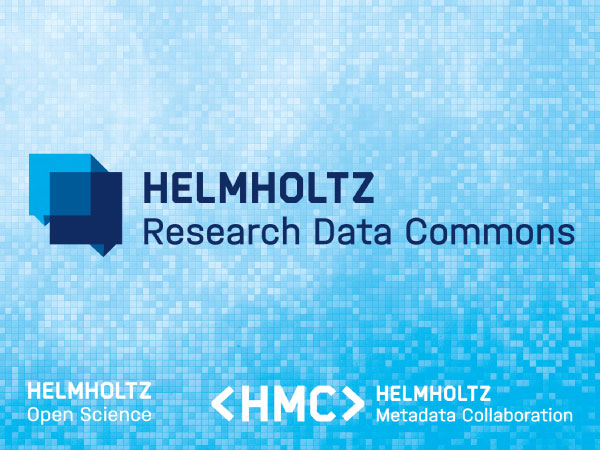
Launch of Helmholtz Research Data Commons Forum
We are very pleased to announce the launch of the Helmholtz Forum “Research Data Commons”, a new initiative to exchange ideas on topics relevant to research data jointly launched by us and the Helmholtz Open Science Office. The event series will kick off on December 12 with a focus on FAIRness, visibility and data quality.
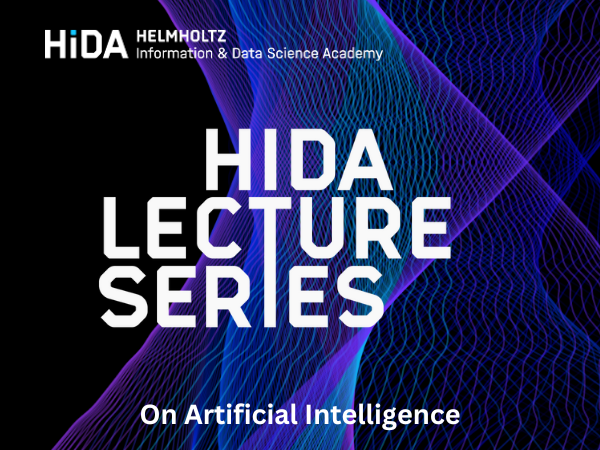
Ethics of AI
In this online lecture on January 23, 2025, Theresa Willem from Helmholtz AI and TU München, will offer valuable insights into “Ethics of AI”. Learn about the roots of contemporary applied ethics, such as AI ethics, and gain insight into cryptic key terms such as “non-maleficence”, “beneficence”, “autonomy” and “justice”.

Funding Opportunities & Awards
DAAD Young Talents Program for AI & Computer Science: The program was extended until June 30, 2029. Explore the calls for applications for post-doctoral researchers and PhD students.

New publications
Confidence intervals uncovered: Are we ready for real-world medical imaging AI? by Evangelia Christodoulou*, Annika Reinke*, Rola Houhou, Piotr Kalinowski, Selen Erkan, Carole H. Sudre, Ninon Burgos, Sofiène Boutaj, Sophie Loizillon, Maëlys Solal, Nicola Rieke, Veronika Cheplygina, Michela Antonelli, Leon D. Mayer, Minu Dietlinde Tizabi, M. Jorge Cardoso, Amber Simpson, Paul F. Jäger, Annette Kopp-Schneider, Gaël Varoquaux**, Olivier Colliot**, Lena Maier-Hein**; *shared first authors, **shared senior authors (conference paper)
Overcoming Common Flaws in the Evaluation of Selective Classification Systems by Jeremias Traub, Till J. Bungert, Carsten T. Lüth, Michael Baumgartner, Klaus H. Maier-Hein, Lena Maier-Hein, Paul F. Jäger
Arctique: An artificial histopathological dataset unifying realism and controllability for uncertainty quantification by Jannik Franzen, Claudia Winklmayr, Vanessa E. Guarino, Christoph Karg, Xiaoyan Yu, Nora Koreuber, Jan P. Albrecht, Philip Bischoff & Dagmar Kainmueller (accepted at NeurIPS, Datasets and Benchmarks Track)
LungVis 1.0: an automatic AI-powered 3D imaging ecosystem unveils spatial profiling of nanoparticle delivery and acinar migration of lung macrophages by Lin Yang, Qiongliang Liu, Pramod Kumar, Arunima Sengupta, Ali Farnoud, Ruolin Shen, Darya Trofimova, Sebastian Ziegler, Neda Davoudi, Ali Doryab, Ali Önder Yildirim, Markus E. Diefenbacher, Herbert B. Schiller, Daniel Razansky, Marie Piraud, Gerald Burgstaller, Wolfgang G. Kreyling, Fabian Isensee, Markus Rehberg, Tobias Stoeger & Otmar Schmid
Discover all publications by Helmholtz Imaging
Job openings
DESY
Phase Retrieval in Imaging and Speech Enhancement (PRISE)